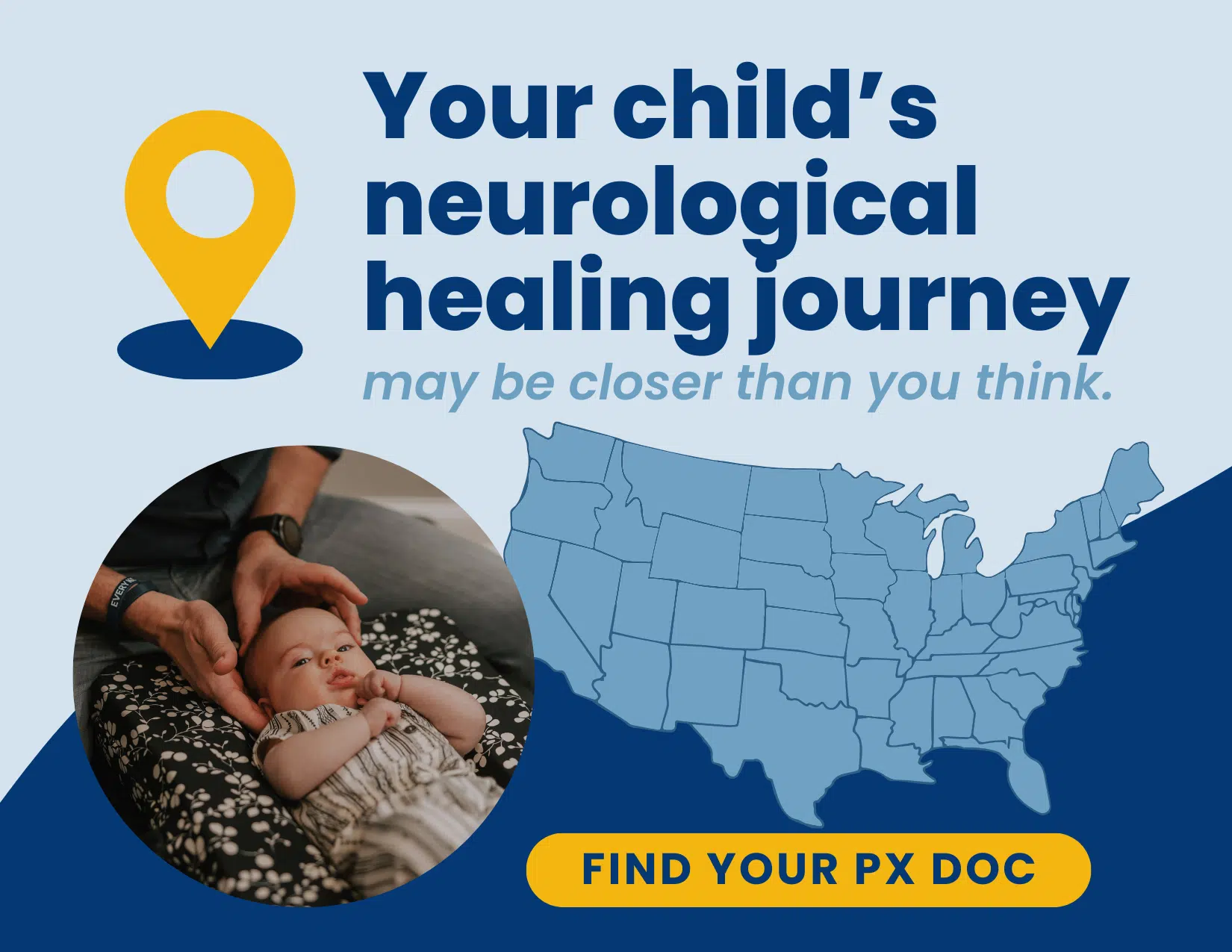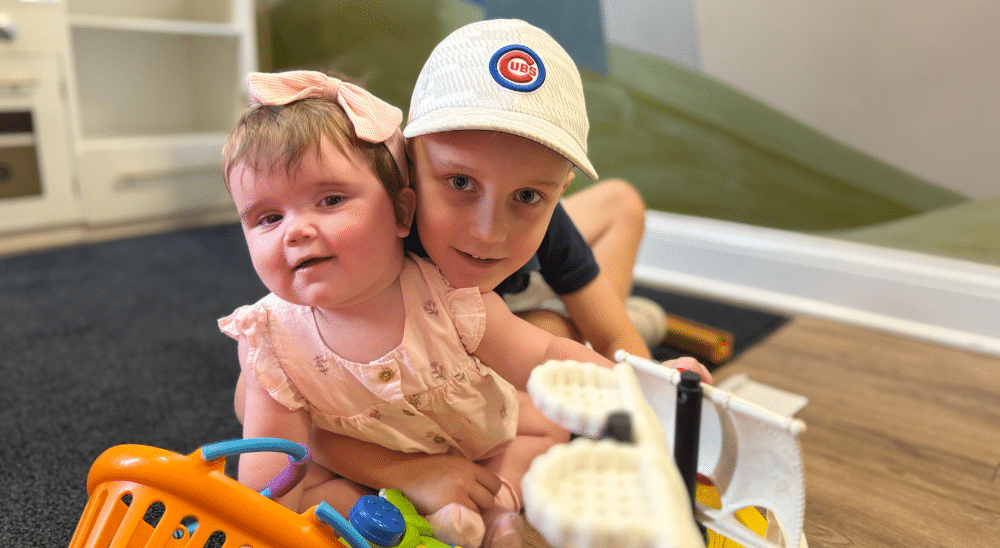The birth of your child should be one of the most joyous moments of your life. But for far too many parents, the experience is overshadowed by feelings of fear, helplessness, and pain. If you’re struggling with the emotional and physical aftermath of a difficult birth, you are not alone.
Birth trauma is surprisingly common, impacting up to 45% of new mothers. Whether it was a long and painful labor, an emergency C-section, or watching your newborn whisked away to the NICU, these experiences can leave invisible scars that impact your health and well-being for years to come.
But what many parents don’t realize is that the effects of birth trauma go far beyond the mother’s emotional state. The stress and physical strain of a traumatic birth can also have a profound impact on the baby’s delicate nervous system, setting the stage for a host of regulatory and developmental challenges down the road.
We understand the overwhelming feelings of sadness, guilt, and isolation that often accompany birth trauma. We’re here to tell you that healing is possible. By addressing the neurological roots of birth trauma through Neurologically-Focused Chiropractic Care, we’ve helped countless parents and babies overcome early challenges and thrive.
We’ll dive deep into what birth trauma really is, how it affects the nervous system, and, most importantly—what you can do to start your journey toward wholeness and joy in parenthood.
What is Birth Trauma?
Birth trauma encompasses a wide range of experiences, from the physical to the emotional. It can include a difficult or painful labor, unexpected complications, medical interventions like emergency C-sections or forceps deliveries, or witnessing your newborn in distress.
In fact, 21% of births are C-sections, despite the World Health Organization recommending only 10-15%.
However, birth trauma is not just about the objective events that occur during labor and delivery. It’s also about the subjective experience and the meaning you attach to these events. What feels traumatic to one person may not be to another. If you felt powerless, unsupported, or deeply afraid during childbirth, then your experience was traumatic, period.
This type of trauma is more common than many realize. And it’s not just mothers who are affected—birth trauma can also impact partners, family members, and even medical staff who witness a distressing birth.
Several factors can increase the risk of experiencing birth as traumatic, such as:
- A history of trauma, sexual abuse, or previous difficult births
- Lack of support or feeling powerless during the birth process
- High levels of medical intervention, especially if unexpected
- Preexisting mental health conditions like anxiety or depression
- Birth injuries or complications to the mother or baby
It’s important to remember that birth trauma is never your fault. Labor and delivery are inherently unpredictable, and even the most well-prepared parents can face unexpected challenges.
The impact of birth trauma can be far-reaching, extending well beyond the days and weeks postpartum. It can affect your bond with your baby, your relationships with your partner and family, and even your sense of self.
The Neurological Impact of Birth Trauma
To understand how a traumatic birth experience affects the body and mind, it’s essential to first understand the role of the Autonomic Nervous System (ANS). The ANS is responsible for regulating all of our unconscious bodily functions, from heart rate and breathing to digestion and immune response. It’s also deeply intertwined with our stress response.
The ANS has two main branches: the Sympathetic Nervous System, which activates the “fight or flight” response during stress, and the Parasympathetic Nervous System, which promotes “rest, regulate, and digest” functions during times of relaxation. Ideally, these two branches work in balance, allowing us to respond to stress when needed and return to a state of calm afterwards.
However, during a traumatic birth, the Sympathetic Nervous System can go into overdrive, flooding the body with stress hormones. When this stress response stays activated too long, it creates a state of neurological imbalance called dysautonomia. This not only disrupts the natural progression of labor but also makes it harder for the body to heal and recover well both mentally and physically in the postpartum period.
For a baby, birth trauma refers to the physical and neurological stress placed on an infant’s neurospinal system during the birthing process, particularly when interventions such as forceps, vacuum extraction, induction, epidurals, or cesarean sections are used. These interventions, while often medically necessary, can place excessive pressure on the delicate nerves and tissues of the baby’s upper neck and brainstem area, especially the vagus nerve, which is critical in regulating essential functions such as breathing, digestion, sleep, immune response, and the modulation of inflammation.
By understanding the neurological impact of birth trauma, we can begin to approach healing in a more drug-free and effective way. Rather than simply caring for the symptoms, we must address the underlying nervous system dysfunction that is at the root of so many childhood challenges.
The “Perfect Storm” of Factors Leading to Birth Trauma
It’s important to note that while it can feel like birth trauma for a mom happened in a single day, it often stems from a culmination of stress over time. It can be its own little perfect storm, with stressors piling up long before labor even begins.
Many women already enter pregnancy and labor stuck in a state of sympathetic dominance — where their nervous system is constantly on high alert, stressed, and overworking. When your body is in fight-or-flight long before labor begins, it doesn’t have the reserves, balance, or regulation needed for birth to unfold smoothly. This often sets moms up for even more challenges and trauma during labor, because their system simply can’t shift gears into the calm, coordinated state needed for a safe and empowering birth experience.
Imagine a mom who has already endured months of poor sleep, daily stress from work or family responsibilities, and maybe even some medical complications or scares during pregnancy. By the time labor begins, her nervous system is already stretched thin. Add in a long labor, bright lights, constant monitoring, a cascade of interventions, and the overwhelming pressure of medical decisions being made rapidly — it’s no wonder her body can feel completely overwhelmed. In that moment, her nervous system may not know how to downshift, leaving her stuck in survival mode when she needs peace, presence, and support the most.
Recognizing Signs of Birth Trauma
Birth trauma can manifest in a wide range of physical and emotional signs, some of which may not appear until weeks or even months after the birth. For mothers, physical signs of birth trauma may include:
- Chronic pain in the pelvis, back, or perineum
- Incontinence or difficulty controlling bowel movements
- Pain during sex
- Lingering feelings of numbness or disconnection from the body
Emotionally, mothers who have experienced birth trauma may struggle with:
- Intrusive thoughts or flashbacks of the birth
- Nightmares or difficulty sleeping
- Avoidance of reminders of the birth, such as certain places or people
- Anxiety or panic attacks
- Difficulty bonding with the baby
- Signs of postpartum depression or Post-Traumatic Stress Disorder (PTSD)
It’s important to remember that these signs are not a sign of weakness or failure as a mother. They are a normal response to a difficult and overwhelming experience.
Babies also show signs of neurological distress related to birth trauma, such as:
- Colic or excessive crying
- Difficulty feeding or reflux
- Sleep disturbances
- Sensitivity to touch or stimulation
- Delays in meeting developmental milestones like rolling over, crawling, or walking
These signs are often the baby’s way of communicating that their nervous system is struggling to regulate itself. Unfortunately, these signs are often dismissed as “normal” baby behavior, leaving families to struggle without proper support.
If left unaddressed, the lasting effects of birth trauma on a child’s developing nervous system can be significant. We see thousands and thousands of kids in our PX Docs offices struggling with challenges that trace back to those very first moments of life. It can show up in so many ways — colic, reflux, constipation, difficulty sleeping, or endless crying in the early months. As children grow, it may become recurrent ear infections, sensory sensitivities, anxiety, developmental delays, or behavioral challenges that seem to come “out of nowhere.”
Parents often tell us they knew something wasn’t right from the very beginning, but they were either reassured to “wait it out” or handed prescriptions that only covered up the symptoms. Meanwhile, the root cause — nervous system stress and dysregulation — was never addressed, leaving both child and parent feeling frustrated, exhausted, and defeated.
Research also suggests that early life stress can alter brain development, impacting everything from emotional regulation to memory. Children who experience birth trauma could be more likely to struggle with situations like ADHD, autism, anxiety, and autoimmune conditions later in life.
If you’re experiencing any of these signs, know that you are not alone and that help is available. Seeking support from a trusted healthcare provider, like a PX Doc, who understands the impact of birth trauma, is an important first step in the healing process.
The Limitations of Conventional Approaches
When it comes to healing from birth trauma, conventional medical approaches often fall short or don’t really address it at all. The primary focus is usually on managing physical signs, such as prescribing pain medication for chronic discomfort or recommending pelvic floor physical therapy for incontinence.
While these interventions can certainly be helpful, they don’t address the underlying neurological dysregulation that is at the root of many post-birth challenges. Some conventional care plans, such as opioids for pain management, could actually worsen symptoms in the long run by further dysregulating the nervous system.
There is also often an overreliance on invasive procedures, such as surgery for pelvic organ prolapse or medication for postpartum depression. While these interventions can be life-saving in certain cases, they are not always necessary and can come with their own set of risks and side effects.
Perhaps most concerning is the lack of support for the mother’s emotional well-being in conventional postpartum care. Mothers are often left to navigate the complex emotions of birth trauma on their own, with little guidance or validation from healthcare providers.
This emotional neglect can have serious consequences. Studies have shown that birth trauma is a significant risk factor for postpartum depression and PTSD. Mothers may struggle to bond with their babies, leading to long-term attachment issues. They may also have difficulty trusting healthcare providers in the future, leading to avoidance of necessary care.
And it’s not just moms who are overlooked. Babies who experience birth trauma and nervous system dysregulation are rarely given the attention they desperately need. Most providers only look for obvious, surface-level issues like feeding difficulties or colic, but they don’t dig deeper into the root cause — the baby’s overwhelmed and imbalanced nervous system. Instead of recognizing signs of sympathetic dominance, vagus nerve dysfunction, or dysautonomia in infants, these struggles are often dismissed as something babies will “grow out of.” Tragically, this leaves countless children to carry the long-term effects of nervous system dysregulation without ever receiving the help and healing they need.
The PX Docs Approach of Neurologically-Focused Chiropractic Care
At PX Docs, we take a different approach to healing birth trauma. Our Neurologically-Focused Chiropractic Care is designed to address the root cause of challenges by restoring balance and healthy regulation to the nervous system.
The first step is listening and diving deep into you or your child’s case history. We want to hear everything — from the birth story to early feeding patterns, sleep habits, developmental milestones, and any ongoing concerns. Every detail matters because the nervous system keeps a memory of stress, tension, and trauma.
Next, we use INSiGHT scanning technology to objectively measure nervous system regulation. This allows us to identify exactly where stress and dysfunction exist, as well as which areas are overactive, disrupted, or underactive. It gives us a clear, visual map of what’s happening beneath the surface.

From there, we create highly customized care plans tailored to your unique needs. Through specific, precise, and gentle chiropractic adjustments, we work to release stress in the nervous system. This allows the body and brain to calm, adapt, and regulate, giving the nervous system the chance to heal and function optimally.
By combining careful history-taking, advanced scanning, and targeted adjustments, we don’t just manage symptoms — we support true nervous system restoration so you and your child can thrive.
The Path Forward
Birth trauma can leave deep scars, both physical and emotional. But with the right support and care, those scars can also be a source of profound strength and transformation.
At PX Docs, we’ve witnessed the incredible power of the human spirit and a healthy nervous system to overcome even the darkest of circumstances. We’ve seen mothers who once felt broken and alone rediscover their sense of wholeness and purpose. We’ve watched as babies who struggled to thrive learn to trust and connect with the world around them, even in the most daunting of circumstances.
This is all about healing: not a return to the way things were before, but a journey towards something new and beautiful. A journey towards greater resilience, deeper compassion, and more authentic connection.
If you’re ready to take the first step on this journey, we invite you to visit the PX Docs directory. Learn from experts who are passionate about helping you heal. And most importantly, know that you are not alone.





